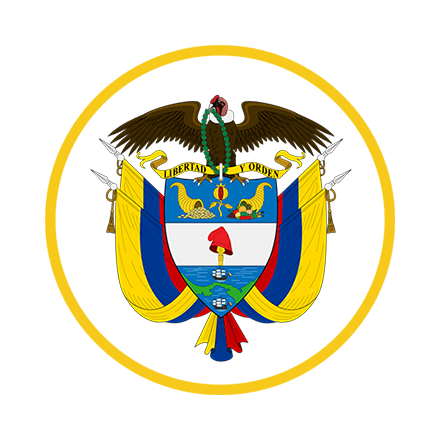On 22 September 2020, the Supreme Court of Colombia handed down judgment condemning the violent repression of anti-government protests in November 2019, during which security forces attacked, arrested and detained protesters, human rights defenders and journalists reporting on the national demonstrations. The Court ruled on a tutela*, filed by several citizens and civil society organisations, which sought to challenge the actions of the security forces and uphold constitutional rights of peaceful protest, freedom of expression and protection of the press.
Media Defence and Robert F. Kennedy Human Rights (RFKHR) submitted an amicus brief to the Supreme Court in the case. Our brief, supporting the position of the six organisations who worked on the tutela, referenced international legal standards on the protection of journalists reporting on protests. In particular, it analysed the scope and nature of the obligations on authorities to guarantee the effective enjoyment of this right, including in the context of the use of force.
In its judgment, the Supreme Court found that the security forces, particularly Colombia’s Mobile Anti-Riot Squadron (ESMAD), had engaged in consistent acts of aggression against peaceful demonstrators and journalists covering the demonstrations. The Court underlined the constitutional and international legal guarantees regarding the use of force by law enforcement during demonstrations, noting that these activities must meet the standards of proportionality and necessity. It also ordered Colombian authorities to apologise publicly for the violent acts perpetrated by the security forces.
Notably, the Court also made a number of orders aimed at ensuring systemic reform, including:
- That authorities, including the president, must adopt norms mandating the neutrality of the executive branch with regards to peaceful demonstrations and protection of the rights to freedom of expression, press freedom and peaceful assembly;
- That the president must initiate a dialogue with the applicants and other interested persons aimed at restructuring rules on the use of force during demonstrations. If the parties are not able to reach agreement, the government must issue a regulation that reflects international and constitutional standards within 60 days;
- Noting the serious impacts of unlawful police action on the rights of peaceful protesters, that the police and Prosecutor’s Office must create a protocol to limit the police’s use of force in the context of demonstrations and establish external monitoring of their action.
As emphasised by Media Defence and RFKHR, this case raised important issues in relation to the right to freedom of expression as protected by Colombian Constitution and international law, including the urgent need to control the actions of the authorities during protests and the serious harassment faced by journalists working in Colombia.
To download the amicus brief of Media Defence and RFKHR, click on this link.
To download the full text of the judgement, click on this link.
*A tutela is a constitutional injunction that aims to protect fundamental constitutional rights when they are violated or threatened by the action or omission of any public authority.
Recent News
World Press Freedom Day Side Event: Profiling and surveillance, a renewed challenge to freedom of expression
From May 2-4 2024, UNESCO and the government of Chile will host the 31st edition of World Press Freedom Day in Santiago. The global commemorative conference commemorates the vital role of journalism and information access in fostering a sustainable future that upholds diversity of voices. Media Defence is organising a side event at the conference […]
Landmark Ruling: Kenya’s High Court Declares Colonial-era Subversion Laws Unconstitutional
Media Defence welcomes the verdict of the High Court in Nakuru, striking down sections of the Kenyan Penal Code which criminalise subversion, citing them as relics of colonial oppression that curtail freedom of expression. Justice Samwel Mohochi, delivering the judgment, asserted that these provisions were overly broad and vague, stifling dissent rather than serving any […]
UN Rapporteurs Call for Protection of Brazilian Journalist Schirlei Alves
UN Rapporteurs Call for Protection of Brazilian Journalist Schirlei Alves Amid Defamation Charges Stemming from Rape Trial Coverage A letter dispatched by UN rapporteurs to the Brazilian Government calls for protective measures for women journalists covering cases of sexual crimes. The letter also denounces the conviction of Brazilian investigative journalist and women’s rights defender, Schirlei […]



